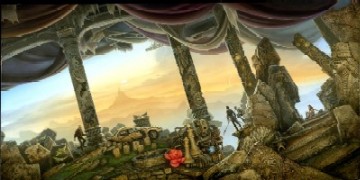A number of people asked for more details about NESFA's Roger Zelazny project. Now that the six volume collection is complete, the books themselves represent a complete description, but here's a quick summary of what we did.
Contents
These six hardcover volumes contain all of Roger Zelazny's short
fiction and poetry that we could find, however obscurely published, along
with a number of unpublished works retrieved from Zelazny's archived
papers. We also included shorter early versions of several novels, two
novel excerpts and a few of Zelazny's articles on topics of interest to
him.
There are numerous other novel excerpts (from Creatures of Light and
Darkness, Lord of Light, Nine Princes in Amber, Madwand, etc.) published
independently as short works that we did not include. We also did not
include the many novel serializations (Jack of Shadows, Sign of the Unicorn, etc.)
The only piece of fiction we know of but could not find is an unpublished Zelazny
story named "Checkup", which was written in 1975 for a special "children's future" issue
of a UNICEF quarterly publication. We have records of it being paid for, but no trace of
the story has surfaced.
Zelazny published over 150 non-fiction pieces, ranging from short
introductions to other authors' books to lengthier essays that addressed
the business and art of creative writing. He also recorded over 60
interviews. Including all of these essays and interviews would have taken
up several volumes on their own and so we chose a select few to
republish. Many of the remaining essays and interviews were quoted from in
the "A Word from Zelazny" sections or in the literary biography, " '...And
Call Me Roger': The Literary Life of Roger Zelazny."
Ordering
Each volume represents an era in Zelazny's fiction writing. His poetry, mostly written early in his career, is intentionally scattered throughout the six volumes.
Range of publication dates for fiction in each volume:- 1954 through 1965
- 1964 through 1967
- 1967 through 1977
- 1978 through 1981 plus the three stories from My Name is Legion from 1969, 1973, and 1975, kept together and pulled forward into V4 where they would fit
- 1981 through 1990 plus one Dilvish story from 1979
- 1992 through 1996 plus one Wild Cards story from 1988
Annotations
Most pieces have afterwords of a literary or biographical nature.
The answer to the questions we've been asked about how we chose to comment on various
words and allusions is simple. Every person, place, historical reference, literary
allusion, or (even mildly) unusual word used in any story or poem was a candidate for
inclusion. We then picked a handful of people as a "target" audience and if any one of
those people didn't know the reference, allusion or word, we left it in. If everyone knew
it, we took it out.
The target audience contained the three editors of the Zelazny collection, a few
other NESFA editors and friends and our memories of what we knew when we were 15
years old. Yes, 15. We figured that readers who are more literate than our target
audience would either ignore the items they already knew or get a small twinge of
satisfaction in knowing it already.
Introductions and Essays
We commissioned or reprinted introductions and essays from family, friends and writers who were fans of Roger Zelazny's work. They include the first general introduction by Robert Silverberg and introductions by Carl Yoke, Kristine Kathryn Rusch, Walter Jon Williams, Neil Gaiman, David G. Hartwell, Joe Haldeman, Steven Brust, Melinda Snodgrass, George R. R. Martin, Jane Lindskold, Gerald Hausman and Gardner Dozois. We also included two memoria, one by George R. R. Martin and one by Trent Zelazny.
Chris Kovacs, one of the editors of the Zelazny collection, wrote a literary biography, " '...And Call Me Roger': The Literary Life of Roger Zelazny", that is split into six parts and spread among the volumes.
Jackets
The books are packaged so the jacket spines form a single image, each spine a subset of a spectacular painting created by Michael Whelan for this project. If the six books are placed on a shelf in order, with the back cover of volume 1 open and the front cover of volume 6 open, the two open covers with the six spines between display Whelan's entire painting. An overview of the art is
Notes
If you possess a story, poem, essay, correspondence from Zelazny or any published work you think may be unique or rare, we would very much like to hear about it for inclusion in possible future revisions.
TOCs
When we have some time, we plan to link the tables of contents for each book here, along with two tables containing all known Zelazny titles, sorted by date and by title.

